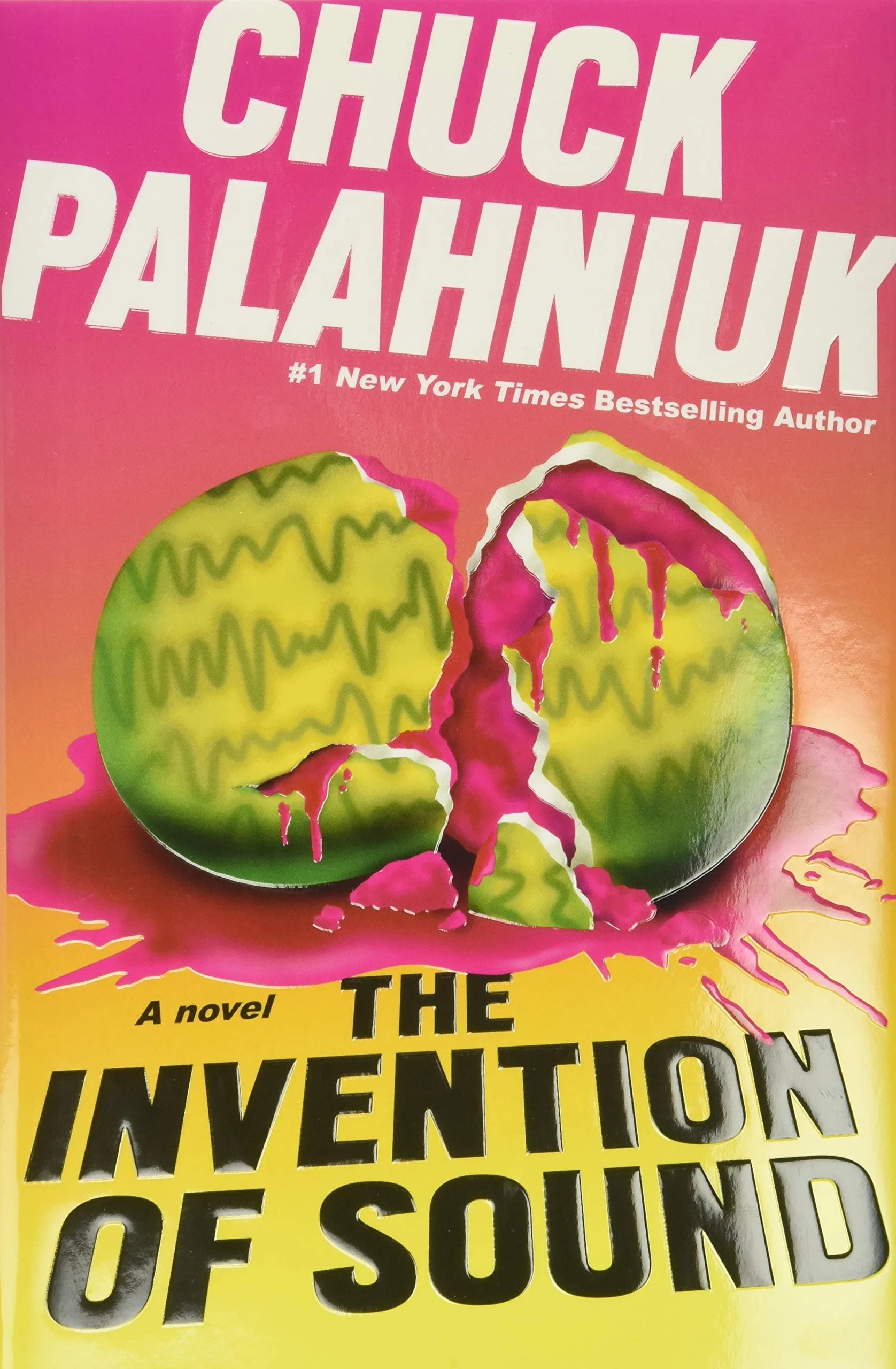Country: USA
Genre: Literary/Transgressive/Satire
Pages: 260
Order LULLABY here
Other Chuck Palahniuk Books Reviewed:
Diary (2003)
The trick to forgetting the big picture is to look at everything close-up.
The shortcut to closing a door is to bury yourself in the details.
This is how we must look to God.
As if everything's just fine.
Now take off your shoe, and with your bare foot, stomp. Stomp and keep stomping. No matter how much it hurts, the brittle broken plastic and wood and glass, keep stomping until the downstairs neighbor pounds the ceiling with his fist.
Fostering a good relationship with an author who changed your life can prove to be a daunting task. The potential for disappointment is sky high. Chuck Palahniuk may never live up to the monster he created with FIGHT CLUB and it's fine. Reaching that deep into the heart of a collective consciousness is a once-in-a-lifetime thing. While most young occidental males have overlooked what FIGHT CLUB was really about (thanks to David Fincher being deliberately confusing about that). To this day, I find FIGHT CLUB to be a fascinating and layered novel that can drag the best and the worst out of people, depending on how much time, effort and perspective they decide to invest into it. What came after for Palahniuk never lived up to his first novel for me and it's understandable. Almost nothing did. He became a hit-and-miss writer for me, but he did put up some quality work out there. LULLABY is one of his good novels for it tells a story nobody but Chuck Palahniuk could have told and he does so in his trademark booming voice.
Carl Streator is a middle-aged journalist suffering severe depression. He's asked by his editor to cover a story about sudden infant death syndrome. Soon enough, Carl starts seeing beyond the drama and a pattern emerges. All the victims has the same book in their bedrooms: Poems and Rhymes from Around the World, bookmarked on page 27. This discovery fans the journalistic flame of Carl, who digs deeper and finds out that the bookmarked poem is a "culling song", a spell made to put sick people and wounded warriors to rest. The discovery is triggering a moral debate within Carl. He stumbled into something horrible, but at the same time, he's just been imbued with a terrifying power over a world he came to detest. So he embarks on a quest for answers and self-control that will make him meet a nutjob realtor and her equally crazy entourage.
The charm of LULLABY is that it presumes the worst in people. Carl is virtually given the power to kill people without leaving any trace, ever. He becomes himself a very potent weapon, armed with this obscure but deadly knowledge. The question now is: "What kind of responsibility must he have as a man for whom moral life has been nothing but failure and depression?" The human soul is corruptible. This is hardly news. But Palahniuk's stance here is "what the hell does a moral living can bring us, if we can wield such power?" To be honest, LULLABY kinda dances around the answers and sometimes strays beside the point or delves into Palahniuk's trademark's wackiness. But are there clear, definite answers to such a quarry? What makes Carl Streator such a dangerous weapon, armed with the "culling song" is that he's a bundle of anger and unresolved issues. The spell wouldn't have been nearly as potent in the hands of a more "decisively evil" character. So LULLABY thwarts any resolution or clear vision on the issues it raises, but it does a fine job at stirring the pot.
The new death, this plague, can come from anywhere. A song. An overhead announcement. A news bulletin. A sermon. A street musician. You can catch death from a telemarketer. A teacher. An Internet file. A birthday card. A fortune cookie.
A million people might watch a television show, then be dead the next morning because of an advertising jingle.
Imagine the panic.
Imagine a new Dark Age. Exploration and trade routes brought the first plagues from China to Europe. With mass media, we have so many new means of transmission.
The idea of having a plague transmitted by mass media is another appealing concept of LULLABY. What is you're punished for wanting to be like the others? What if stepping outside your life for a couple hours will harm you? I love it when genuine longing is spiking through the inherent satire in Palahniuk's novels. This is the case in LULLABY, through the apartés of Carl, thinking over how miserable his life is and putting it in perspective through his newfound powers. Not everybody could've handled such a subject the way Palahniuk does. He gives a supernatural story a ground into cold, hard reality. LULLABY is a great example of a typical good Palahniuk novel. He can wrap a narratives around selected themes in such a seducing way, not many writers can do that. It maybe not live up to FIGHT CLUB or INVISIBLE MONSTERS, but LULLABY is great. If you're already sold to Palahniuk, throw yourself over this. If you're not, it may be a good place to start (aside from the obvious).
FOUR STARS



